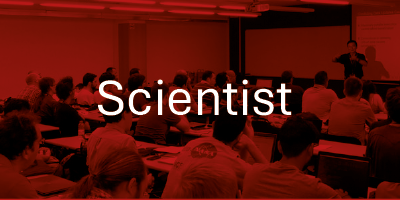Gain a solid foundation in artificial intelligence by exploring its core principles, historical evolution, and major subfields, including knowledge representation, machine learning, NLP, and computer vision. The course also equips researchers to critically examine the ethical, societal, and methodological impacts of integrating AI into scientific work.
Introduction of AI for researchers (IAI4R)

Training details
Location
Barcelona, Spain
Date
09/12/2025
Time
15 : 00
Teaching language(s)
English
Organizing institution
Barcelona Supercomputing Center (BSC)
Delivery mode
On-site
Level
Introductory
Format
Lecture
Registration for the training
Learning Outcomes
Fundamental Concepts
- Understand the core principles and history of artificial intelligence including its main subfields such as knowledge repreentation, machine learning, natural language processing and computer vision
Ethical and Societal Impact
- Critically assess the ethical, social, and methodological implications of implementing AI in research
Agenda
- Tuesday, 9 December 15:00 – 19:00h
Auditori Pier 07 Tech Barcelona
Via Laietana, 26, Ciutat Vella, 08003 Barcelona - Wednesday, 10 December 15:00 – 19:00h
Auditori Pier 01 Tech Barcelona
Plaça de Pau Vila, 1, Ciutat Vella, 08039 Barcelona - Thursday, 11 December 15:00 – 19:00h
Auditori Pier 07 Tech Barcelona
Via Laietana, 26, Ciutat Vella, 08003 Barcelona
Instructor name(s)
Ulises Cortés, Full-Professor and BSC Researcher of the Universitat Politècnica de Catalunya (UPC)
Instructor’s biography
 Ulises Cortés is a Full-Professor and Researcher of the Universitat Politècnica de Catalunya (UPC). He has been at UPC since 1982 (tenured since 1988 and habilitated as a Full-Professor since 2006), working on several areas of Artificial Intelligence (AI) in the Computer Science Department, including knowledge acquisition for and concept formation in knowledge-based systems, as well as on machine learning and in autonomous intelligent agents. Since 2025 he is the High-Performance Responsible Artificial Intelligence Research Area Director at the Barcelona Supercomputing Center. Since 2017, Professor Cortés has been the founder and scientific manager of the High-Performance Artificial Intelligence group at the Barcelona Supercomputing Center. He is a founding member of the Ethical Committee of the Universitat Politècnica de Catalunya (2019), appointed until 2027.
Ulises Cortés is a Full-Professor and Researcher of the Universitat Politècnica de Catalunya (UPC). He has been at UPC since 1982 (tenured since 1988 and habilitated as a Full-Professor since 2006), working on several areas of Artificial Intelligence (AI) in the Computer Science Department, including knowledge acquisition for and concept formation in knowledge-based systems, as well as on machine learning and in autonomous intelligent agents. Since 2025 he is the High-Performance Responsible Artificial Intelligence Research Area Director at the Barcelona Supercomputing Center. Since 2017, Professor Cortés has been the founder and scientific manager of the High-Performance Artificial Intelligence group at the Barcelona Supercomputing Center. He is a founding member of the Ethical Committee of the Universitat Politècnica de Catalunya (2019), appointed until 2027.
Learning Objectives
- The course explores main areas of AI, including knowledge-based systems, machine learning, and autonomous intelligent agents.
- Practical sessions emphasize concept formation, data analysis, and the application of AI methods to environmental, social, and engineering problems.
- Strong attention is paid to ethical considerations, responsible AI and societal impact
